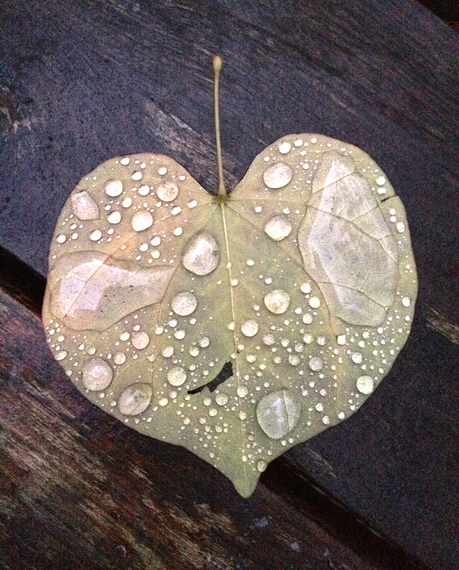To look up, down or behind and no longer see the shadow of a parent but only one's own, and to be the next in line to the succession of a generation, is never a simple concept to grasp. Whether we feel sorrow or relief and everything in between, that myriad of sentiment takes time to trickle down, through and out. When I saw my father in mid-December he looked at me and said:
"You know it's terminal."
I smiled faintly and nodded and we both cried. And yet within the hissing sound of disbelief inside my head and hollowness within my chest, I felt a surge of empowerment for him; he could control his destiny in a way that the messiness of everyday living prevents us from doing. His life no longer in the lap of the Gods, but in the hands of modern medication and constant loving care, he could now focus on a condensed version of the life he had lived; a chance to reaffirm all that was resonant, and hone his awareness of the outside world towards a quieter reflection about being okay with himself. He fully acknowledged the commitment of a wife who loved him for 45 years, marveled at his granddaughter's unorthodox plans for a life he knew he wouldn't see, advised me on my own professional pursuits, pointed out the glow of a sunset behind us that we had been too distracted to appreciate, helped me put on my 10-year-old duffel coat quipping how much he'd always loved it, and, when close to unconsciousness, struggled to raise my hand to his face to give it a succession of small kisses that his lips could barely form, a gesture of old when I was five and he sang me the Beatles song, "Will you still feed me, will you still need me, when I'm 64?" So, no, he wasn't contributing to the dialogue on ISIL within Libya; instead he was finding the more relevant sweet spot of peace and acceptance.
Was it a life cut short? Yes, these days being 88, active and sentient is no reason to have to go. Disease can do that yet it can also bestow the gift of one last dose of time to enjoy validation from others, agenda-free and genuine, as close as it will come to attending one's own funeral.
And for those left behind? Well, in the same vein as "We will always have Paris," we will always have my father. In the week leading up to his passing, family and friends took over the wonderful hospice lounge, much as he had the lobbies of the Cairo or Beirut Hilton in times of crisis, the operative word under which he thrived. It was a fitting tribute to that same verve-filled intrepidness. Here was our situation room, and we locked eyes in mutual understanding of a momentous time and place so that in years to come that "then and there" memory would absolve our busy lives of absence, or distance or falling out of touch. As others' tears wetted my own cheeks and their breathing settled on my coat collar, I understood the power of storytelling -- the thread of civilizations and the crux of journalism -- as strangers and friends alike communicated and filled an empty space with prescience, meaning and the gentle ache of the past.
And through the process of caring and getting ready to say goodbye, our ideals of what it is to be human are further enforced; the power of kinship, resilience and compassion, and the power of ourselves; strengths we thought we never had end up supporting vulnerabilities in others, and our own fragility is reassured by a comment from someone we would otherwise not know. And all this while nurses preside over us as the angelic purveyors of solace. How fortunate were we and he to be there even though perhaps faced with the predicament of our own demise we might shout out to someone, "you first and tell me what it's like." I guess my father is figuring that out right now.
